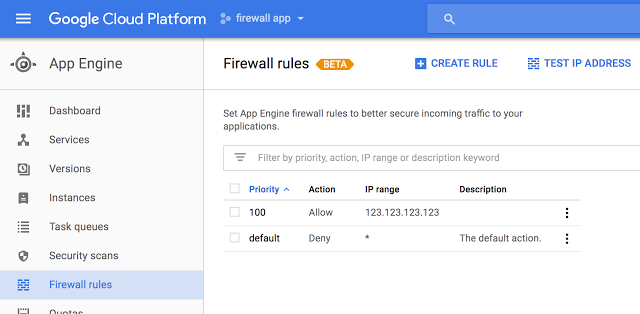Google on Thursday informed cloud platform customers that the beta release of its App Engine firewall is available for testing.
The Google App Engine firewall allows developers and administrators to easily allow or block traffic from specified IP addresses by defining a set of rules and ordering them based on priority.
Hosting an application in the cloud has many benefits, but unwanted traffic can have a negative impact on workloads and it can result in significant costs.
According to Google, the App Engine firewall addresses this problem by returning an HTTP 403 Forbidden response to requests from denied IP addresses before they hit the application.
“App Engine firewall replaces the need for a code-based solution within your app that still allows requests in, but which can cost you resources and still expose your app,” explained Lorne Kligerman, product manager at Google.
The App Engine firewall can be accessed from the Google Cloud Console or via the App Engine Admin API and the gcloud command-line tool. Users can specify which IPs they want to allow — for example, allow only IPs from the organization’s private network, or only traffic coming through a third-party web application firewall (WAF) set up to proxy requests to the app.
They can also deny certain types of traffic, including denial-of-service (DoS) and other attacks. Users are also offered a “Test IP” feature that allows them to check if the rules they’ve configured work properly.

“With App Engine firewall, it’s easy to set up network access to your app and focus on what matters most: your app, without worrying about access control within your code,” Kligerman said.
Since the App Engine firewall is still in beta, Google advises against using it in production environments.
This is not the only security feature available for the Google App Engine. Google’s cloud platform also includes identity and access management (IAM), a security scanner for identifying vulnerabilities, and a DoS protection service.
Related: Security Firm Releases Details of Unpatched Google App Engine Flaws
Related: Google Shares Details of Its Security Infrastructure














